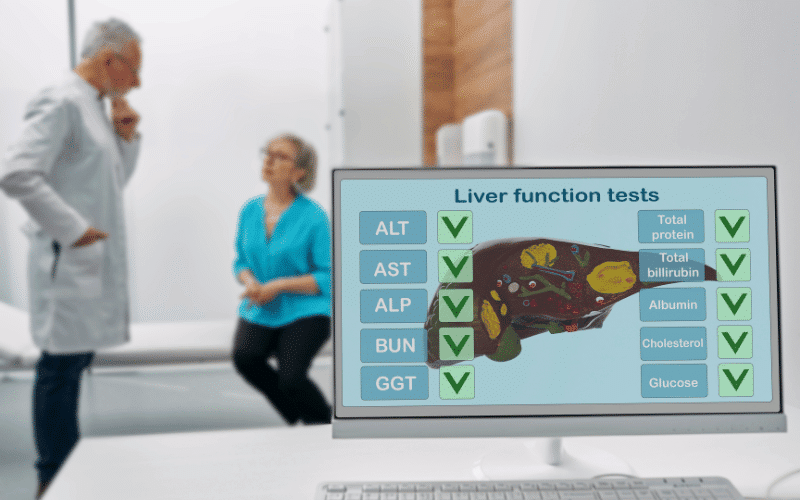FAQs: Common Questions About Liver Cancer Symptoms

1. How can I differentiate between liver cancer symptoms and symptoms of other liver diseases?
It can be challenging to differentiate between liver cancer symptoms and symptoms of other liver diseases, as many symptoms overlap. In many cases, it’s impossible to determine the cause of a particular symptom without consulting a healthcare professional and undergoing appropriate diagnostic tests. If you’re experiencing symptoms that concern you, it’s essential to consult with a healthcare provider who can evaluate your condition and recommend appropriate diagnostic procedures and treatments.
2. Can liver cancer be asymptomatic in the early stages?
Yes, liver cancer can be asymptomatic in the early stages, meaning that the disease may not cause noticeable symptoms until it progresses to a more advanced stage. This is one reason why liver cancer can be challenging to diagnose early and underscores the importance of regular medical checkups and screenings for individuals at higher risk for developing the disease.
3. Are liver cancer symptoms the same in men and women?
While many liver cancer symptoms are the same for both men and women, some gender-specific symptoms may be experienced due to hormonal imbalances caused by the disease. For example, men may experience gynecomastia or impotence, while women may experience changes in menstruation or fertility. However, the majority of liver cancer symptoms are not gender-specific and can be experienced by both men and women.
4. Can symptoms of liver cancer come and go?
Some liver cancer symptoms may come and go or vary in intensity over time. It’s essential to monitor any changes in symptoms and consult a healthcare professional if you notice new or worsening symptoms, as they could indicate the progression of liver cancer or another serious underlying issue.
5. Can liver cancer cause symptoms in other parts of the body?
Yes, liver cancer can cause symptoms in other parts of the body, particularly if the cancer has metastasized or spread to other areas. For example, bone pain can be experienced if the cancer has spread to the bones, or hormonal imbalances can cause symptoms in various body systems. It’s crucial to consult a healthcare professional if you experience symptoms that concern you, as they could indicate liver cancer progression or another serious health issue.
6. What should I do if I suspect I have liver cancer symptoms?
If you suspect you have liver cancer symptoms, it’s essential to consult a healthcare professional as soon as possible. Early diagnosis and intervention are crucial for successful treatment and improved outcomes. A healthcare provider will be able to evaluate your condition, recommend appropriate diagnostic tests, and determine the best course of treatment based on your specific situation.
Conclusion: Understanding Liver Cancer Symptoms for Early Detection and Improved Outcomes
In conclusion, being aware of the various symptoms and signs of liver cancer is crucial for early detection and timely intervention. This comprehensive list, encompassing 20 liver cancer symptoms, highlights the importance of understanding the wide range of potential manifestations, from common symptoms like jaundice and abdominal pain to lesser-known signs like cognitive dysfunction and mood swings.
By staying informed about these symptoms and regularly monitoring any changes in your body, you can take a proactive approach to your liver health. If you experience any of these symptoms or have concerns about your health, consult with a healthcare professional who can provide guidance, perform necessary tests, and recommend appropriate treatments if needed.
Ultimately, knowledge is power in the fight against liver cancer. By recognizing the warning signs and seeking medical support, you can improve your chances of early detection and more effective treatment, leading to better outcomes and an enhanced quality of life.